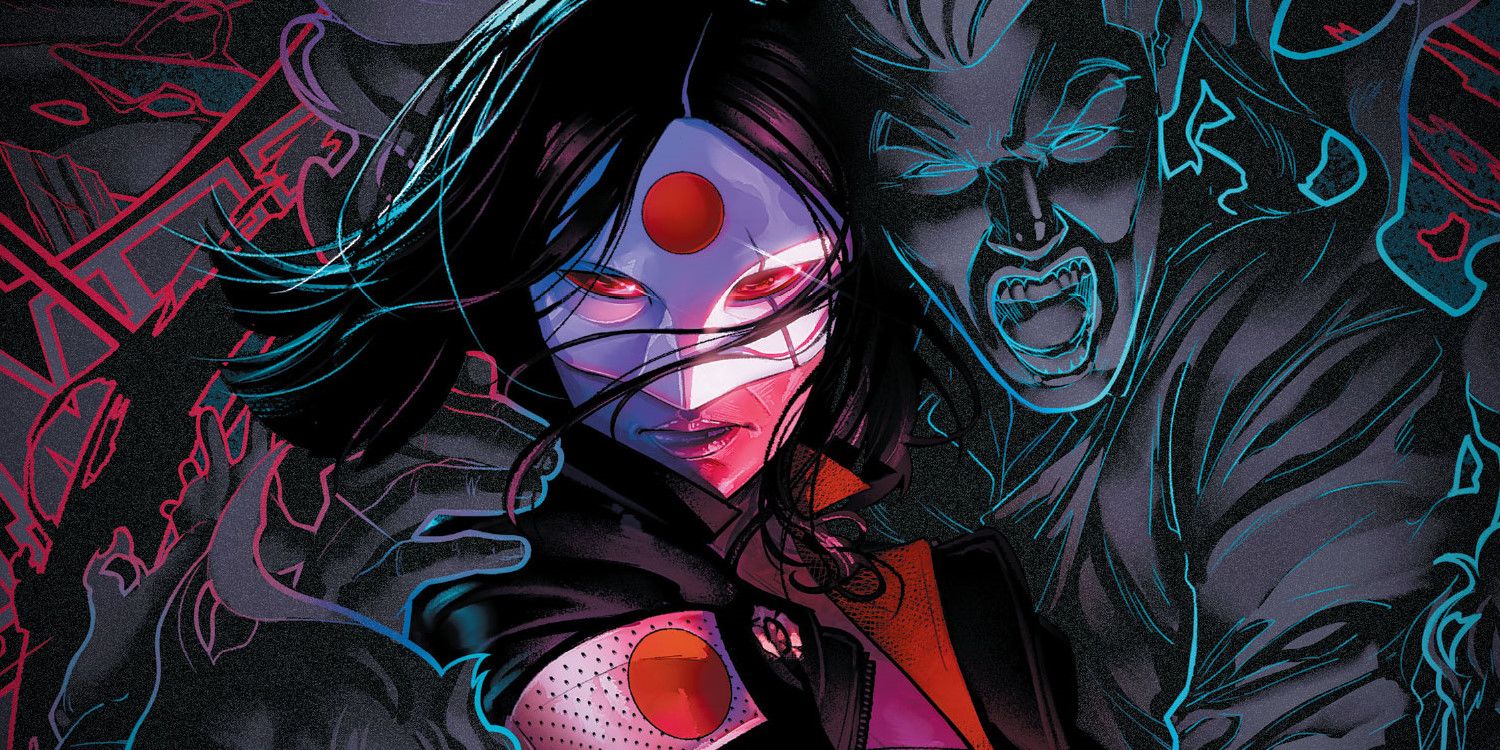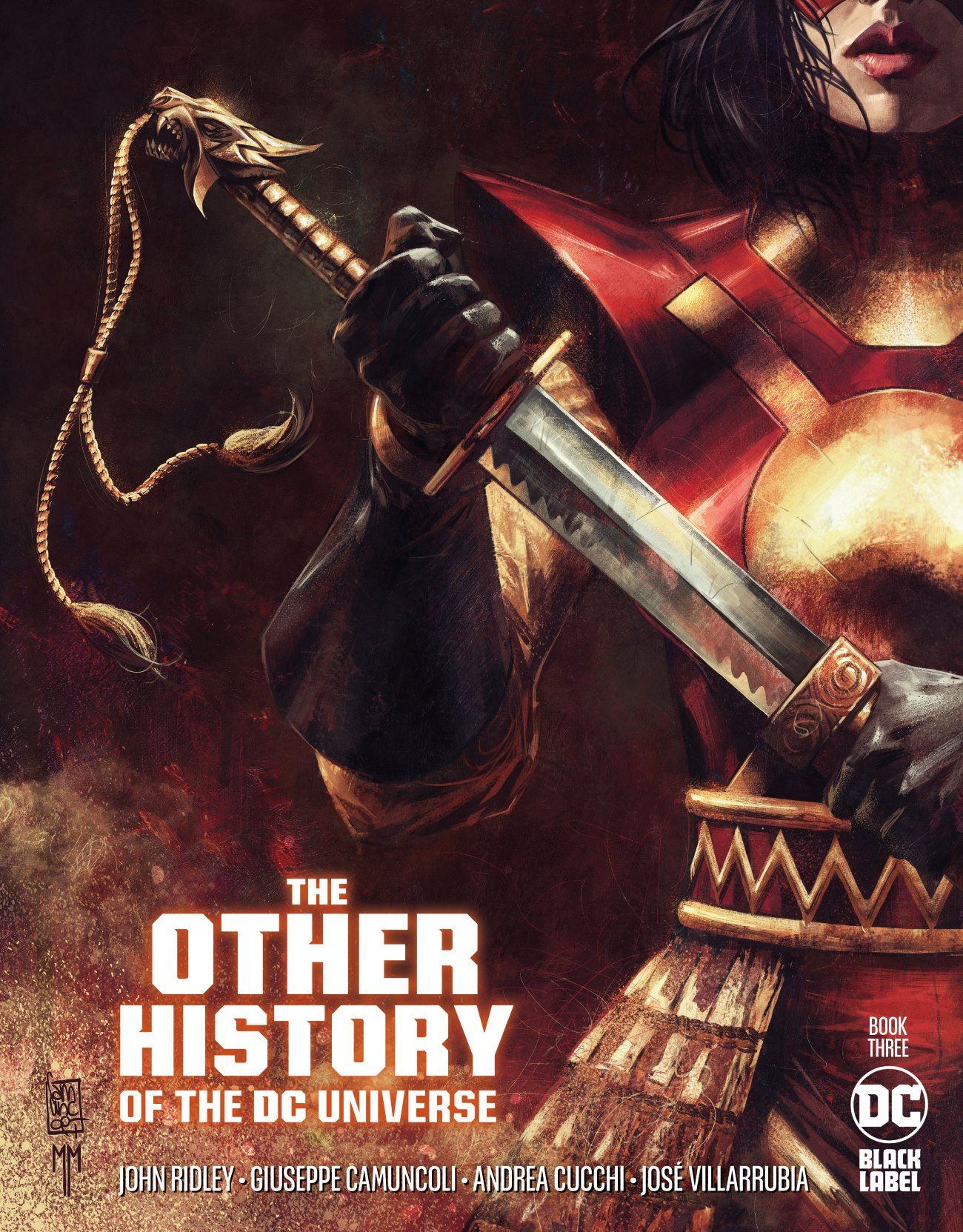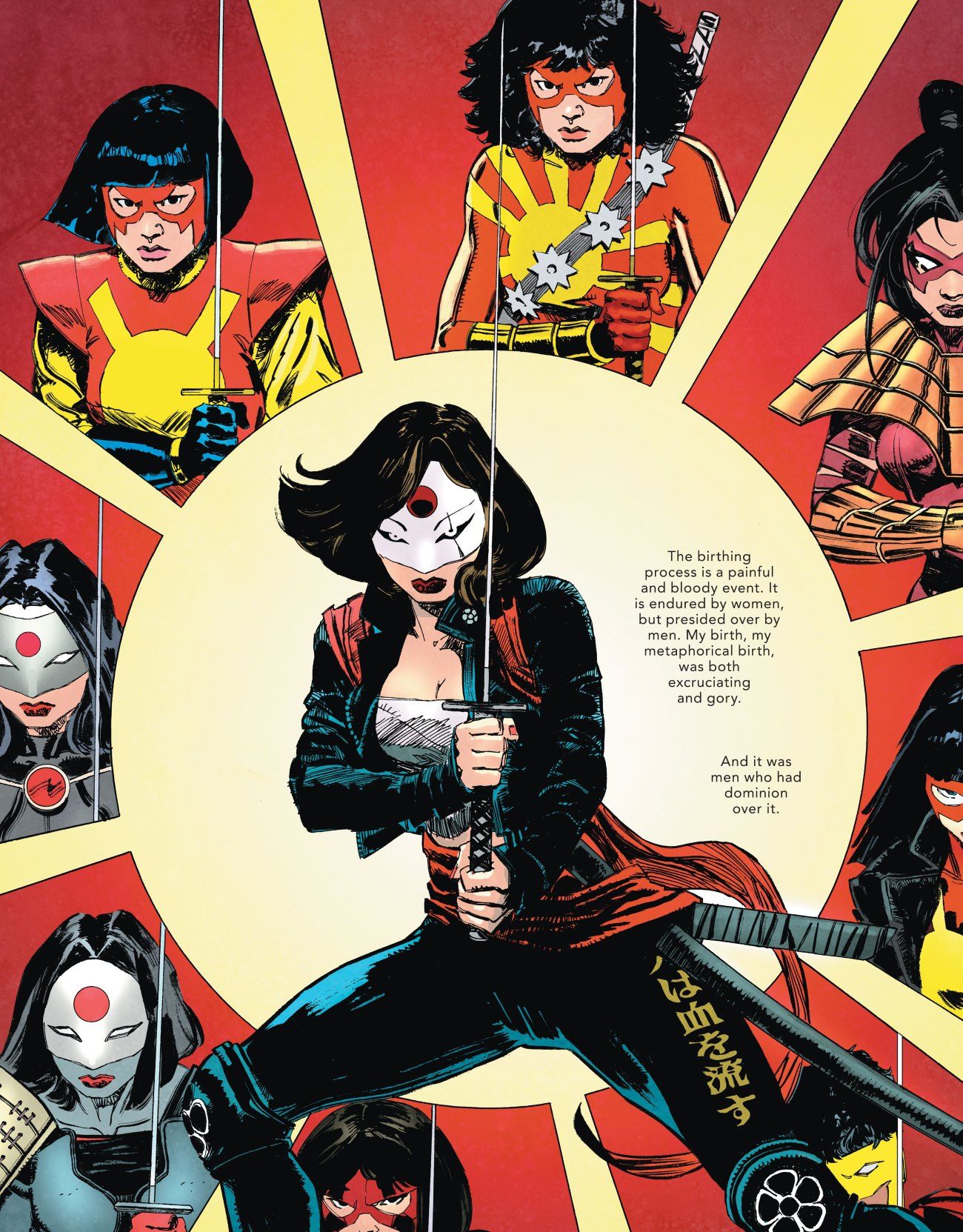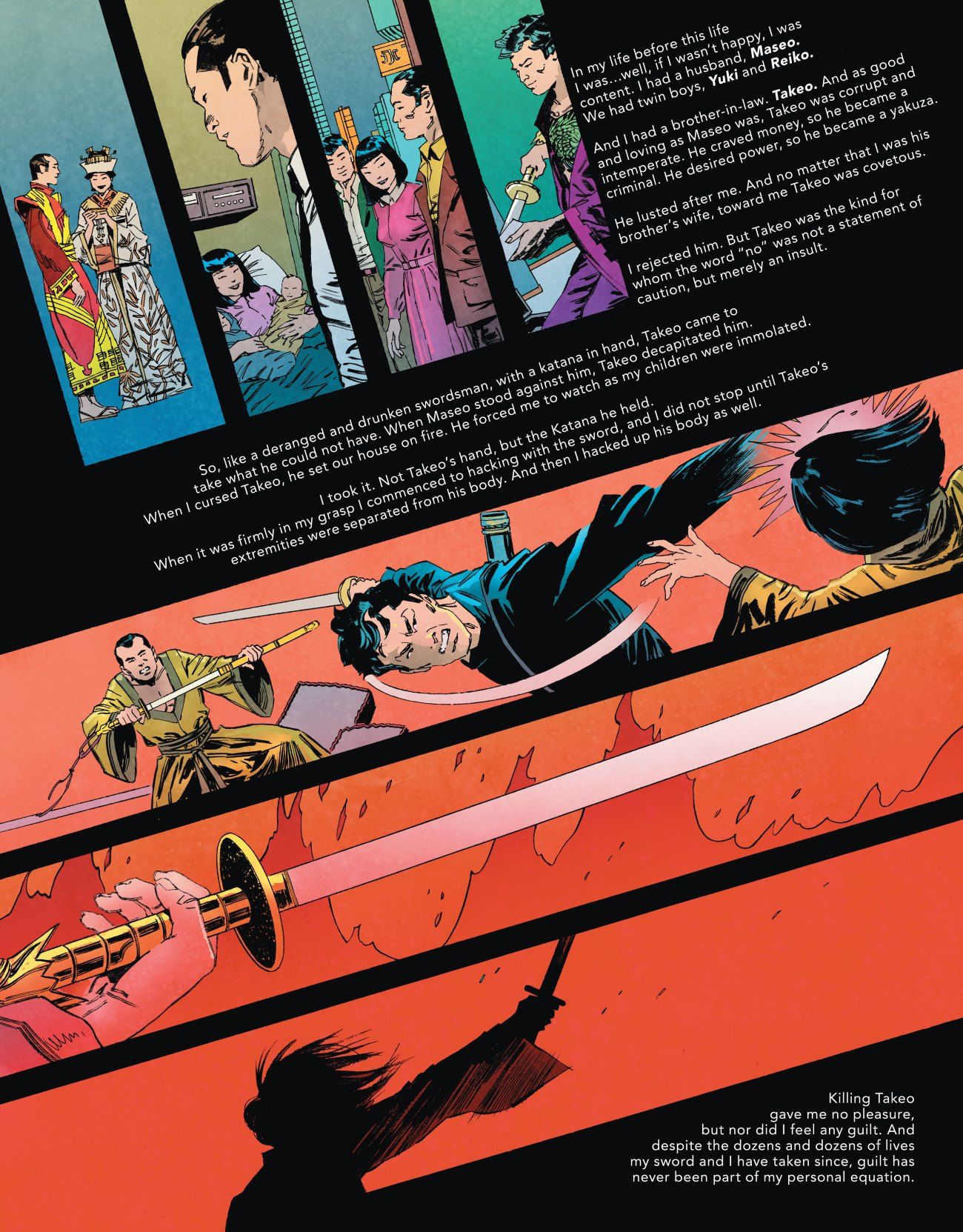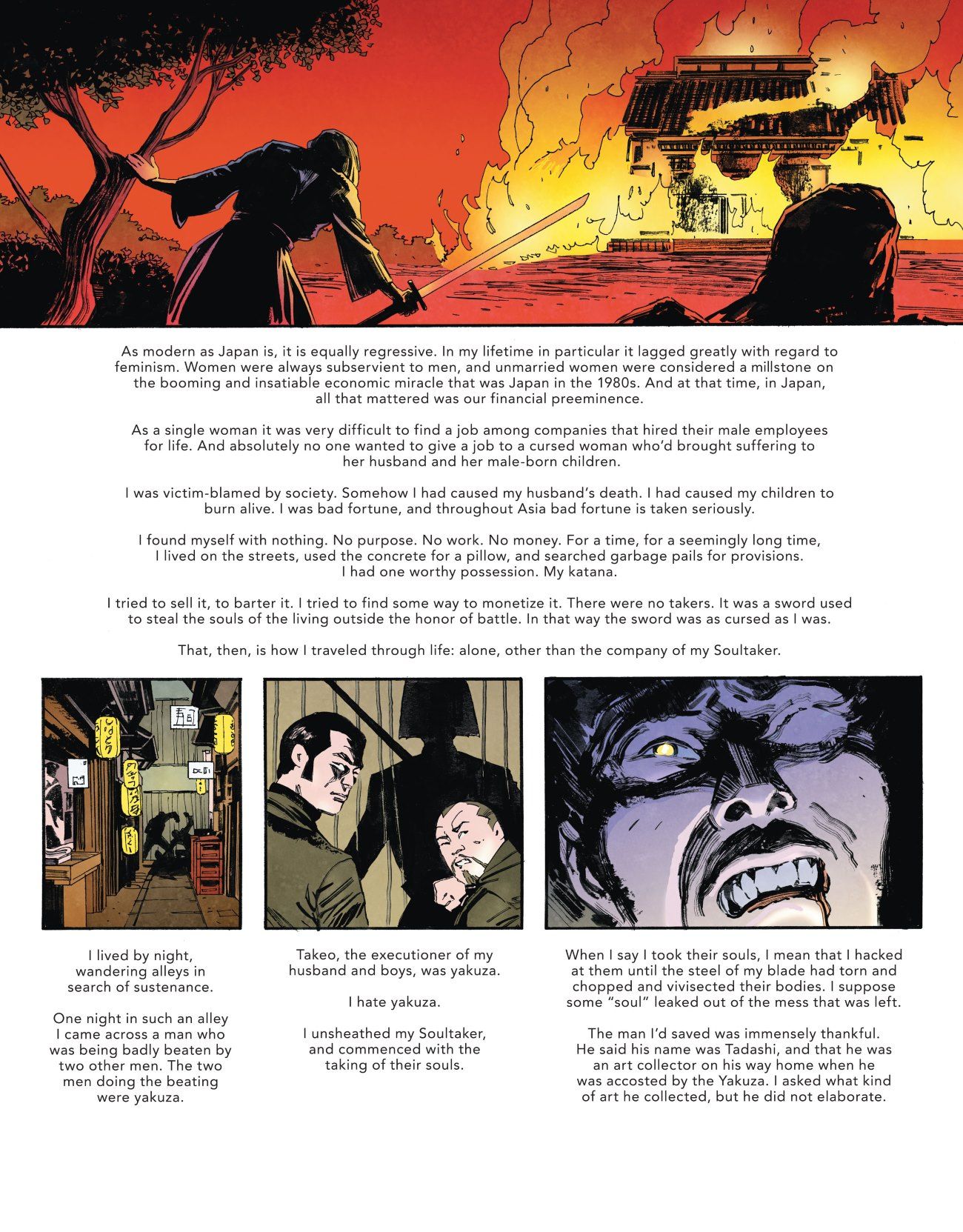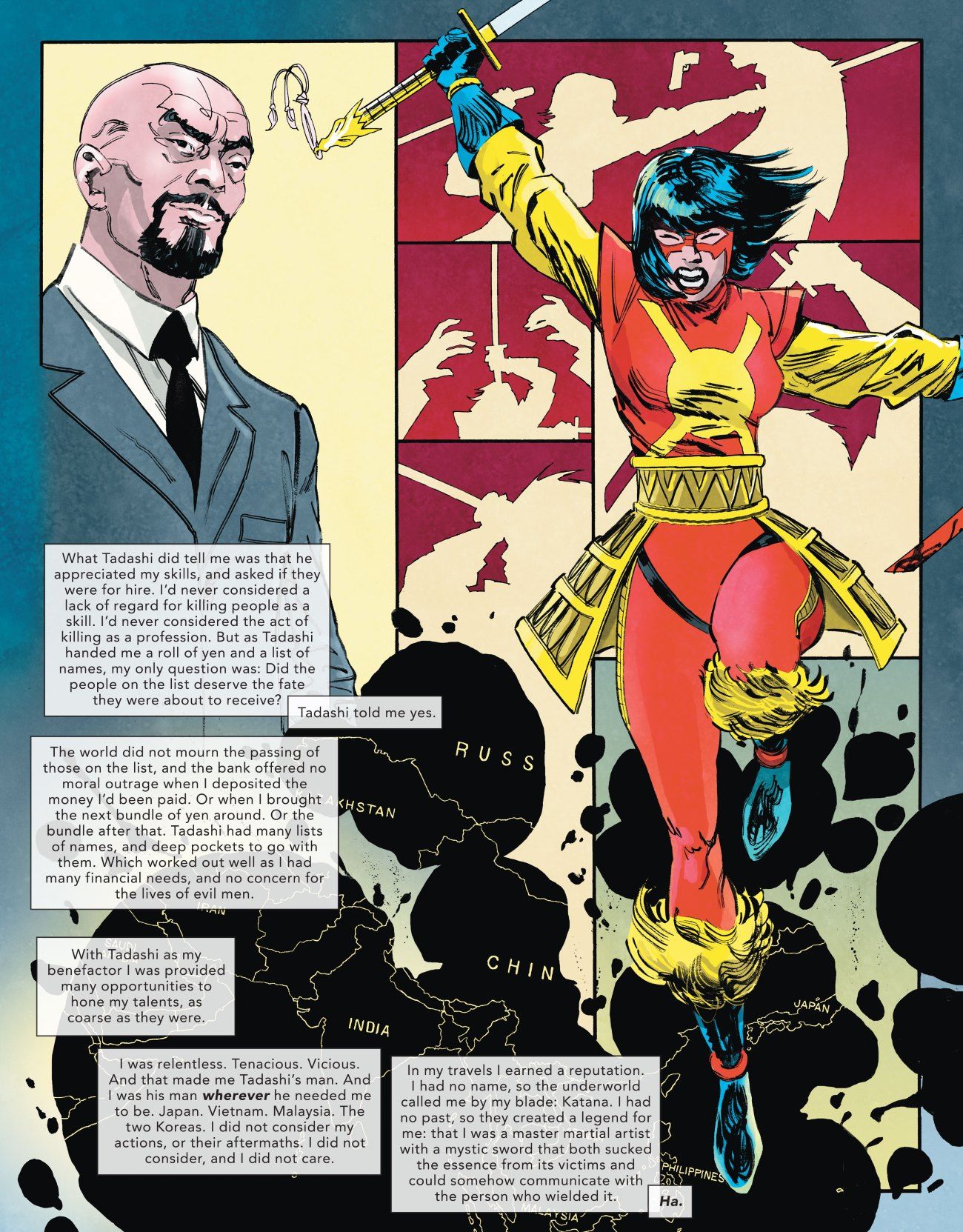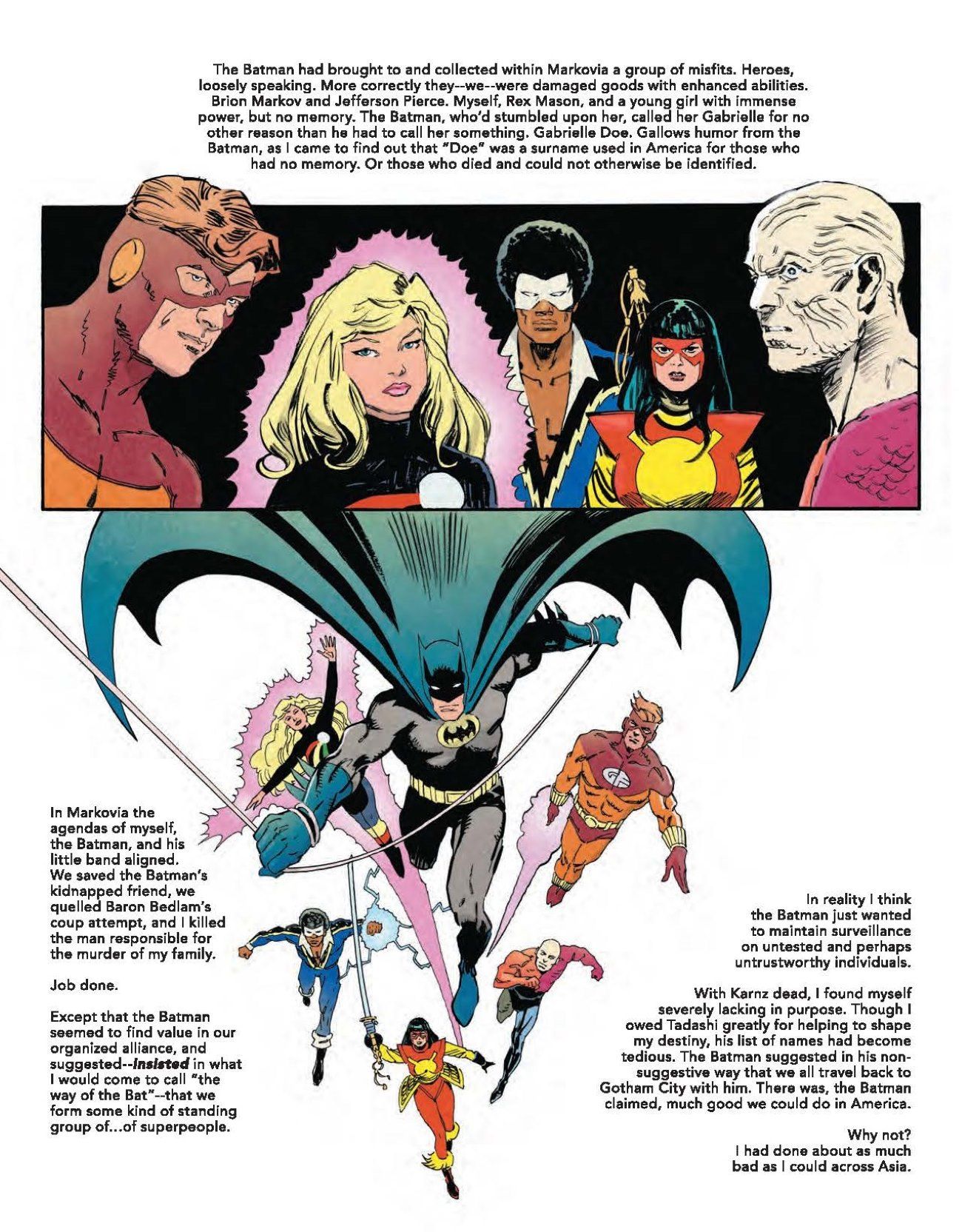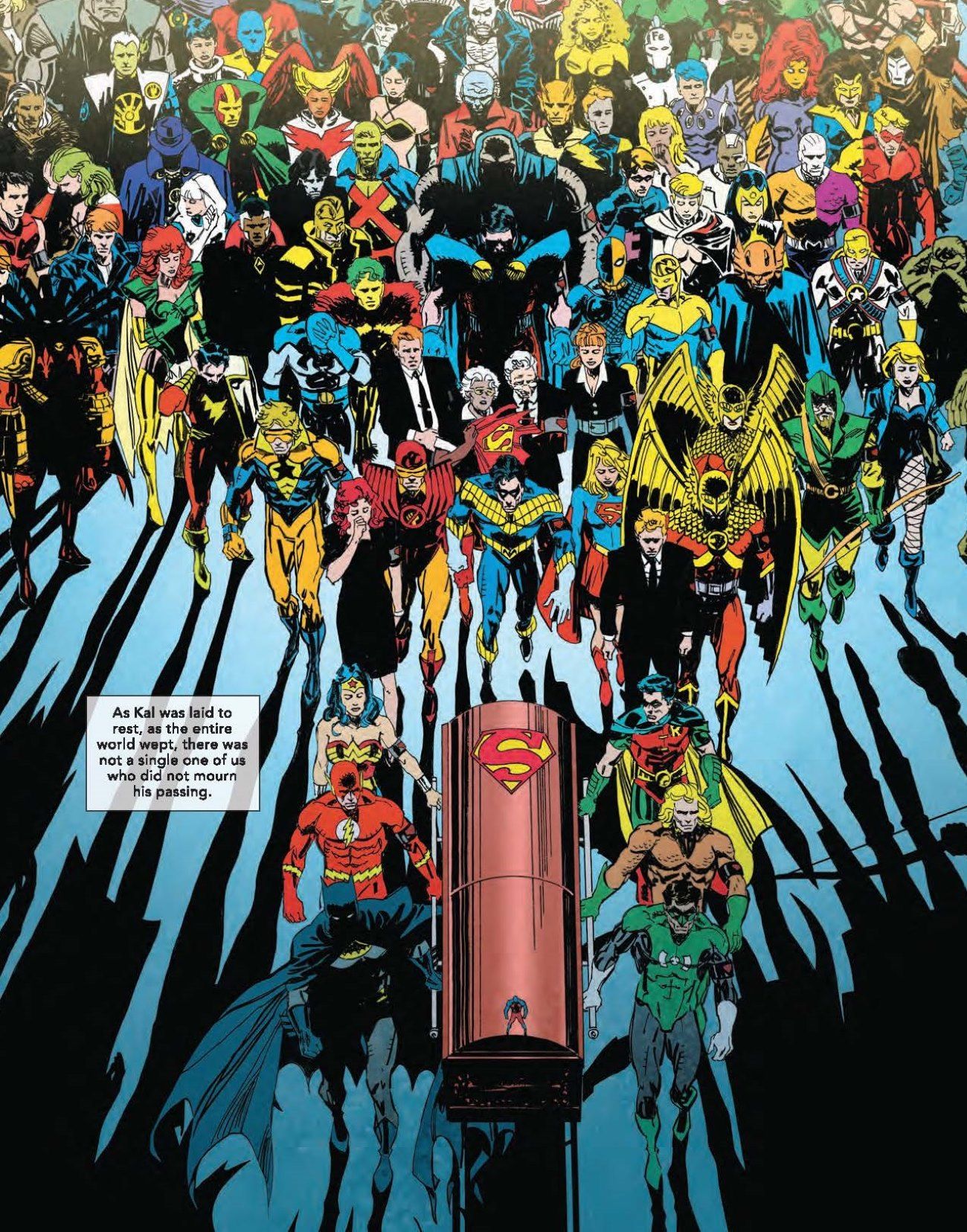The mission being tackled with The Other History of the DC Universe was clear from the very start, allowing writer John Ridley to pull the strange, conflicted, troubling, and problematic history of heroes of color back out into the light. With two issues down, the book from DC Black Label is delivering on that mission, and more.
Restoring dignity to overlooked characters, acknowledging failings of the past, and adding new stories to help repair those rifts and gaps, The Other History of the DC Universe speaks to the ongoing process of rectifying what was with what is in DC's Universe. With heroes like Black Lightning being revisited, and Herald and Bumblebee following suit, the five-issue series has cemented its status as reference reading for years to come. And with The Other History of The DC Universe #3 putting the spotlight on Tatsu Yamashiro a.k.a. Katana, her arrival from Japan into the 1980s American comic book scene offers a whole new challenge. Thankfully, John Ridley spoke with Screen Rant about the series thus far, the response to his comic book quest, and re-examining Katana's entry into the DC Universe as a literal Outsider. Readers can find the entire interview below:
Screen Rant: With two issues of The Other History of the DC Universe now already released, how has the response been, in regards to your goals for the title?
John Ridley: As these issues come out, I could not be more proud not just of the work that I've done, but the whole team: Giuseppe and Andrea and Jose. I'm proud of how the book looks and how it feels. It's one thing spend a lot of time looking at it on a computer screen, but you get it in your hand, and it just feels special.
The format feels special, the way it's laid out on the page feel special, the attention to detail that everybody put into it feels very, very special. And so I'm proud of it. I'm proud to have it sitting around the house and displayed around my office. I don't typically have a lot of my own stuff that I display; I just feel like it's not good form to build a shrine to yourself. But this is one of the things that's most definitely out and around for all kinds of reasons.
How it plays in the wider world? It's interesting because, as you may know, I'm not on social media. I don't get immediate responses about things. For me to be aware of things, they really have to bubble up to a different level. And what I am aware of is that it's really landed, I think, for DC thus far the way that we'd all hoped it would. People are impressed by what's on the page, and they're impressed by what DC chose to support in terms of the kind of content that's really in the book.
One of the things that I do hear when I speak to individuals like yourself - journalists, reporters, people who really follow graphic novels and writing and things like that - that people are really impressed that DC has allowed a level of honesty in portraying systemic bias that may have been historically embedded in the company through the characters. [It explains] why there maybe have not been as many black and brown or LGBTQ characters, or why female characters may have been portrayed in certain ways. Person to person, people are really impressed that there's a level of honesty - not just in terms of my interpretation of things, but an acknowledgement of the lack of representation historically.
That wasn't censored, it wasn't left out; it was woven into the story, and it made it feel more real in those acknowledgments. Not as an indictment of DC, but just knowing that's the way society was. And you can see, most of us can look at it and say, "Well, that wasn't a good thing." The stories were great, TV or film or whatever, and we all managed through those spaces. But there's a reason why they fell short; there was a reason why they had a negative impact on people who are traditionally marginalized. And I think people are really impressed and appreciate that it feels real, it feels honest, it feels like it's taking fictional characters and putting them in a more real space.
So, that's what I know. And, honestly, that's all I need to know: that people appreciate the team, and that people appreciate what DC was trying to do and that they were ahead of it. We went through a summer where a lot of corporations were like, "We've got to do better. We've got to represent better. We've got to reflect." And I do appreciate that three years ago, DC was like, "Okay, we do need to do those things. But we don't need extraordinary horrific events." Things are already at a place where they needed to be more reflective - we all needed to be more reflective - so they actually stepped up and supported a project that was meant to do that.
SR: I think people understood the premise of the book from the start, and the time seemed right to offer a new perspective. But what I've seen fans be most surprised by is how much... isn't new. Rather, addressing dangling threads and conspicuous gaps. Was that a part of the goal?
John Ridley: Definitely. In terms of being honorific to DC's history - with all respect to Marvel, growing up, you're generally one or the other. I was DC kid, and I loved DC Comics. There's a time when you're young, you don't necessarily think about lack of representation - you just enjoy the story. From the late 70s into the 80s, I read all the characters, all the stories, and everything that happened. Every week, I was in the comic book store and had a pull bag before pull bags were even the thing.
In general, comic books really changed my life. They made me want to read; they made me understand storytelling; they made me understand creative thinking. I know you and I would not be having this conversation right now if I hadn't discovered comic books, so I owe them everything. But there is a time you get a little bit older, and you start to realize there aren't a lot of characters of color in here. There aren't a lot of people who look like me, and there aren't a lot of people who look like people I know. And it does start to bother you.
Then you get to be older, and it does more than bother you. It's like, "This is not right." But what I didn't want to do was just write the John Ridley version of the DC history. I didn't want to take 30 or 40 years of history, throw it out the window and say it has no values. Because ultimately, the men and women who wrote those stories, who created those stories, who drew those stories - they still inspired. It was still great stories; they still inspired me and still made me want to be a storyteller. It was more about taking this history that I did love and I did appreciate, and saying, "I'm going to be honest about this history. I'm not going to make Superman a horrid bigot. I'm not going to make Batman a xenophobe." But at the same time, there were moments where you go, "Okay, what about this? How does this reflect the system that they were created in?"
There were certainly elements where I also wanted to deconstruct that a little bit. You have the narrators who realize maybe Clark was selfish in the way he quote-unquote raised Kara. But maybe he did it for this reason; maybe he understood loss in a way that nobody else did. Yes, he came off as sort of mansplaining to Kara, but maybe there was a reason for that. Because it's the easiest thing in the world to indict, indict, indict. I could have written 40 pages five times of, "And then the white guy did this. And then the white guy was awful because of that."
Listen, there are plenty of awful people in the world, but I think an awful system has been built up over time. And you can take really good people, put them an awful system, and bad things are going to happen. You take a bad person, put them in a bad system, and it's just going to be a nightmare. And we see that all the time. To me, it was about being honorific to a history that I appreciated. To me, it was saying these characters are not evil, but they may have flaws. All of these characters, even the protagonists in these stories, are flawed. Sometimes they're myopic, because that's being human.
And the other thing I didn't want to do is say all the black and brown people are all so perfect, because that doesn't make us equal. That's false. I wish I was a black man - I wish I as me - were walking around every day, perfect, perfect, perfect. I'm not. I needed my characters to be complicated across the board. And there's no greater complication than human nature. That's what I really want, and I believe that's what people really respond to: this is a book about humanity, and not just the superpowers.
At DC, Marvel, or any other comic book company, you've got the person who can fly; you've got the super fast person; you've got the person who's great with arrows. It's the human qualities that make these individuals and these characters so very different. That's what I wanted the Other History to really lean into.
SR: Sometimes it feels like reverence for the characters has made the people who were doing the comics 30 years ago untouchable. But Other History is saying, "Yeah, but their work isn't." Dennis O'Neil was famously open about trying to do the right thing by taking away Wonder Woman's powers, but acknowledging he made a mistake. Would you say that's a part of this, that the line on Batman's restrictions is being taken hand in hand with those of the people writing him?
John Ridley: Yeah, absolutely. I mean, there's perspectives that we all have. And it's not about saying, "Okay, well, Dennis was a bad guy." He's also part of the team that did "Hard Traveling Heroes," probably some of the most real storytelling up to that point. People are someday going to look back at this and go, "John was trying to write Renee as a Latinx LGBTQ character, and what did he know?" And there's truth to that. There really, really is.
But at the same time - and I've had this conversation with Tony Isabella, because you can look at his work and go, "Well, he didn't do this," or "Why was it written this way?" There's a level where that may be legit. But I wouldn't be here if Tony hadn't created Black Lightning. And for all of us, when we create, there is an implicit invitation for other people to join in with their time, to join in with their money, and to maybe join in with their abilities one day. And I think for all of these folks, and for the audience, to not necessarily look at it and go, "You weren't woke enough back in the day," before people used that one word to try to express an entire range of emotions. But you did write something where you said, "Look, if this inspires you, maybe one day you can do that."
When we inspire people, we also have to be ready when somebody who's accomplished, capable, energized, and has all kinds of abilities knocks on the door and happen to be Latinx or Asian or gay or what have you. And you can't go, "We're kind of guys in here. I don't know if you're going to fit in our clubhouse." We put a message in a bottle: "You've arrived. Come on in and help us do a better job of aligning these things." And I think that's really what it's all about.
So, I don't look back at these stores and go, "This was racist in its formulation." Yeah, maybe it fell short. But, again, it inspired. I really do believe that they were largely men at the time, and they wrote things from their experience. Superman is the immigrant experience from the 1930s. Batman is living in the crime lord experience of the 1930s. Wonder Woman was not created by a woman, but it had the spirit of female empowerment. Men are stupid, and we just fight wars, and we need a better image out there - that was Wonder Woman. Where Wonder Woman is now and where she was then are completely different places, but they represent the same thing. I don't know if female empowerment is bad phraseology, but sisters are doing it for themselves, as the phrase goes.
It's one thing to put those things out there. It's another thing when you put them out there, and then you build the roadblock after and go, "Yeah, I don't need your advice. I don't need your talent. I don't need your skill set. I'm really good writing black people or Asians or women or gay folks." That to me is where it becomes problematic. I know I'm getting things wrong too, but it's on the back end when somebody goes, "I love your work. I would love to be able to do something like that and make it a little closer." If you slam the door then, it is absolutely wrong.
SR: That is a great segue into issue three. I was not expecting Katana to be a spotlighted character here, but this is an opportunity to look at where the world was at the time. How different was that process for a character like Katana, coming from a different background, in a different cultural context?
John Ridley: It's funny, because when it happened way back in the day - three years ago, which is stunning to me that it's three years later, and only the third issue is out. But DC was very excited, so they were doing an event and I got invited to DC in DC where they wanted to announce it. They were like, "What characters?" And I was like, "I don't even know. You just said yesterday you wanted to do it, and now you want to know the characters."
Jefferson Pierce was going to happen, just because of what he meant to me and the time period. Then Mal and Karen, because I knew Mao was going to be in it. I think back then I kind of forgotten about Karen, but as I started, I was like, "Oh my god. Of course, he dated Karen." And I think that was interesting, to start with a black man and then make it a young black couple.
And then Katana. In the '80s, I was in New York and thinking about getting into foreign service. Japan was in ascension; people are so afraid of Japan, and I had started studying East Asian languages and culture and really focusing on Japan. Here's this character who was inserted into the DC Universe in the 80s. And I just remember feeling like, "They have these characters from Japan, but they don't necessarily deal with what it would be like to be Japanese in America, having arrived to a place where people hated." The whole culture was anti-Japanese.
Now I'm looking back, and Katana has remained a durable character but still sort of a sidekick character. She's had mini spin-off issues and things like that. But if you look at terrific characters in the DC Universe, she was among characters who were great and durable - certainly, she ended up in Suicide Squad's book and film, but she's not necessarily given the focus that I think that she deserves.
In terms of The Other History of the DC Universe, she's the perfect character to communicate so many issues, so much focus, and so many things that I really felt were very important, about. That was very, very important to me, just in terms of perspective, gender, nationality, where America was at that time period, all of that stuff.
SR: Since you sort of broached that idea, was there a part of that story that surprised you? Or that felt like your way in, or your thread to catch onto?
John Ridley: One thing that was very interesting to me, in particular, was the entire concept of the Outsiders. In the first issue with Jefferson Pierce, he talks a little bit about the Outsiders, and he thinks it's a really cool name. And then Tatsu is talking about how, "This is really an offensive name," because it is kind of a collection of outsiders Herself, she's a foreign national. Then Geoforce is coming from a made up country, but he's certainly a foreign national. Gabrielle is this blonde girl with no memory, and I put this in heavy quotes, but she could be believed to be a ditzy blonde. And we've got a black guy. Tatsu's thinking Outsiders is a pejorative; a negative name.
But what I did like was it was this very eclectic team; this very reflective team that became a family. Even when they fought the Force of July, I remember reading that issue when it was originally published during the Reagan era. The iconography of Reagan was right for the moment, but I remember when he kicked off his campaign as the Republican candidate for president outside of Philadelphia and Mississippi, talking about states rights. I remember as a black person, you could hear that dog whistle 10 miles away.
So that, for me, is part of what really made Tatsu and her story perfect and really good for that time. Because we're moving from the 70s through the 80s to the 90s and into the early 2000s with these characters, so she really represented the 80s. Being Japanese, being female, being someone who goes from being an assassin to someone who is a little bit more thoughtful and doesn't just kill for the sake of killing and all of that. It was interesting, and she was the right character for book number three, in my opinion.
SR: This is a very obviously concentrated push to look back, which DC was willing to do. Do you see that happening more across the industry, and across these specific superhero universes?
John Ridley: I certainly believe that various companies, certainly the major companies, are much more cognizant of storytelling that's really reflective of the world that we live in for all kinds of reasons. I hope and believe that they do it because they understand that it's right. At the end of the day, whether they or any other corporation does it because they think it's right, or because they realize there's money to be made, I don't really care why people change. I hope they have a change of heart, but if they respect my economic buying power, then that's okay too.
But if you look at the growth into the business, and if comic books now are more IP factories or generators. Can we get enough new readers in, that comic books are making money but are also going to be interested in our IP? What are the biggest stories? Black Panther, Wonder Woman, Captain Marvel. Not a comic book story, but based on a book, Crazy Rich Asians - these were making money back when we could go out in public.
I think it's the right thing to do from a human standpoint, and it's a necessary thing to do from a business standpoint. The audiences are stepping up - specific audiences in terms of gender or ethnic background, but to be a huge billion dollar film, you need a big generalized audience from around the world. And those are the people who are turning out. For many reasons, we're at a place now where companies are saying, "We got to [diversify]." I don't think it's an accident that the biggest new hero to come out in the last bunch of years is Miles Morales. For myself, I don't think it's an accident that the Next Batman, Jace Fox, has really taken off. There's just an interest there.
I'm happy to be part of it, and I'm very proud of DC for recognizing it early and not waiting till after something like George Floyd to go, "We need to do better. We need to be part of the conversation." It's funny, you do these five and the first one feels really special, the second one feels special... They all feel special. Number three is a perfect story for imperfect times, but you know if it continues conversations, if it really forces people to think about how stories are told and their impact - but more than anything, if it renews an interest in Tatsu or makes people interested in her as a character - then I think we've done our job.
The Other History of the DC Universe #3 is available now wherever comic books are solid digitally or physically in store.

